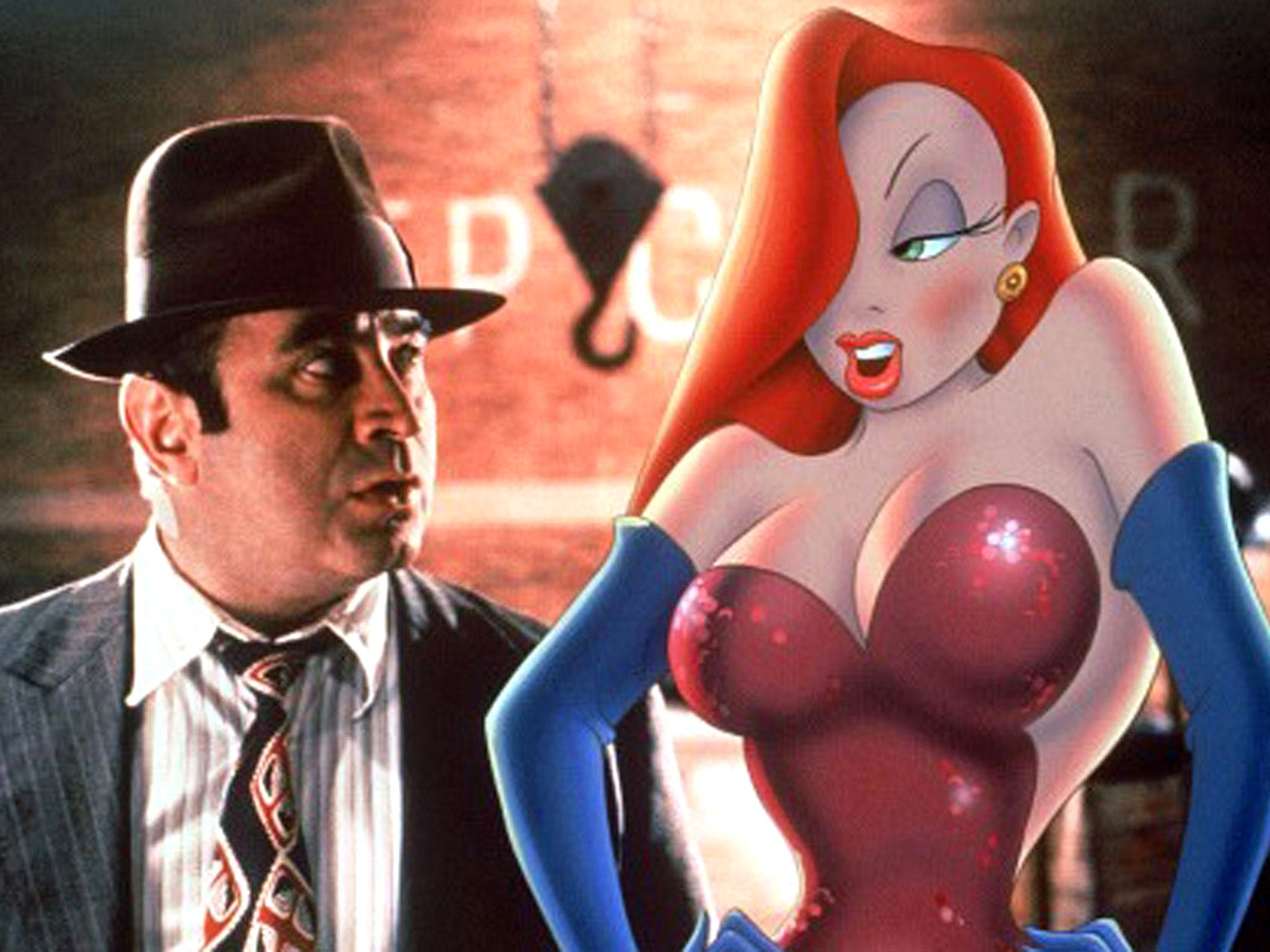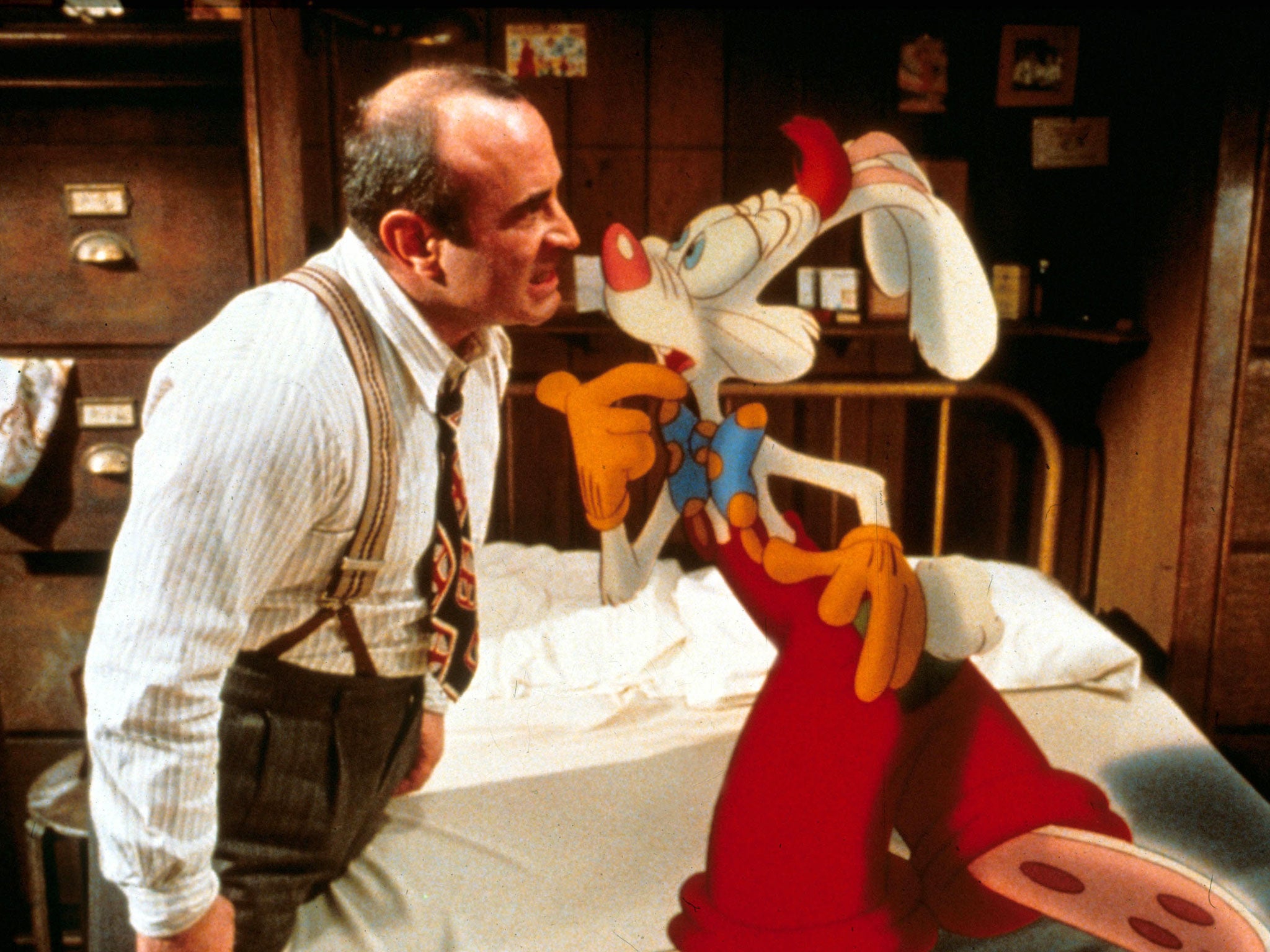The Independent's journalism is supported by our readers. When you purchase through links on our site, we may earn commission.
Who Framed Roger Rabbit director Robert Zemeckis reveals why sequel will never see the light of day
Zemeckis says despite a good script, Disney ‘would never make Roger Rabbit today’

Your support helps us to tell the story
From reproductive rights to climate change to Big Tech, The Independent is on the ground when the story is developing. Whether it's investigating the financials of Elon Musk's pro-Trump PAC or producing our latest documentary, 'The A Word', which shines a light on the American women fighting for reproductive rights, we know how important it is to parse out the facts from the messaging.
At such a critical moment in US history, we need reporters on the ground. Your donation allows us to keep sending journalists to speak to both sides of the story.
The Independent is trusted by Americans across the entire political spectrum. And unlike many other quality news outlets, we choose not to lock Americans out of our reporting and analysis with paywalls. We believe quality journalism should be available to everyone, paid for by those who can afford it.
Your support makes all the difference.Who Framed Roger Rabbit director Robert Zemeckis has revealed why he believes the film will never receive a sequel, despite a “good script” being written.
The Forrest Gump filmmaker, 72, has said that the current Disney would never make Roger Rabbit today and suggested the character of Jessica Rabbit is too sexualised for the modern iteration of the studio.
Speaking on the Happy Sad Confused podcast, Zemeckis explained that original screenwriters Peter S Seamen and Jeffrey Price had written a follow-up, but that the sequel “isn’t ever going see the light of day, as good as it is.”
“There’s a good script at Disney, but here’s the thing: The current Disney would never make Roger Rabbit today,” he said. “They can’t make a movie with Jessica in it.”
He added: “I mean, look what they did to Jessica at the theme park. They trussed her up in a trench coat, you know?”
Zemeckis went on to say that the original 1988 movie, which featured a ground-breaking combination of live action and animation, was a product of a period of time when Disney was “ready to rebuild itself.”

“We were there when that new regime came in, and they were full of energy, and they wanted to do it,” said the director.
“I kept saying, and I sincerely say this, I do believe this, ‘I’m making Roger Rabbit the way I believe Walt Disney would have made it.’ The reason I say that is because Walt Disney never made any of his movies for children. He always made them for adults. And that’s what I decided to do with Roger Rabbit.”
When the film marked its 30th anniversary in 2018, The Independent film critic Clarisse Loughrey wrote that Jessica Rabbit has feminist appeal.

Watch Apple TV+ free for 7 days
New subscribers only. £8.99/mo. after free trial. Plan auto-renews until cancelled

Watch Apple TV+ free for 7 days
New subscribers only. £8.99/mo. after free trial. Plan auto-renews until cancelled
“Jessica Rabbit may not dominate the screen time of Who Framed Roger Rabbit, but her legacy has become as outsized as her bra measurements,” wrote Loughrey. “Thanks to those fantastical proportions, she’s both a legitimate sex symbol and the parody of one; an animated cartoon character who’s been lusted over and fetishised to the maximum.
“She’s the pure product of the male gaze, in many ways, since her creators – animator Richard Williams and director Robert Zemeckis – have openly described her as the ‘ultimate male fantasy.’ A walking, talking punchline, too: the drop-dead gorgeous babe who’s saddled with the meek, dorky type. How did a gal like her ever end up with a rabbit like Roger?
“Yet, the most legendary of sex symbols can rarely be so simplistically interpreted. From Marilyn Monroe to Lara Croft, pop culture pin-ups have often come with their own subversive, feminist appeal: especially within the construct of third wave feminism, which allows space not only to embrace contradiction, but to celebrate it.”
Join our commenting forum
Join thought-provoking conversations, follow other Independent readers and see their replies
Comments